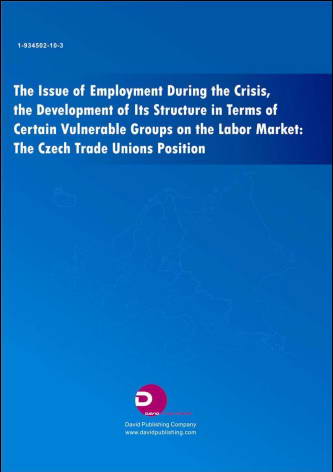The present work deals with the development of the labor market in a very sensitive period, which was characterized by a significant crisis shock. This is the period starting in 2008, when there was a worldwide recession and economies accompanied by substantial deterioration of the situation on the market right, i.e., primarily the growth of unemployment. This development is also reflected in significant level in the Czech Republic, whose economy was thus subjected to more severe test. Over the past decade, Czech economy has undergone an extensive transformation from planned economy to market economy, and in 2004, the Czech Republic became a full member of the EU. Effects of both of these two factors created very risky matter and in combination with the effects and consequences of the crisis their negative impacts have been multiplied.
This publication is divided into two specific parts. The first one catches “statistical” figures described the development in the Czech Republic in comparisons with situation in other European countries. It deals with problems. The second one is dedicated to description and analysis of the actual types of economic policies in the Czech Republic from the point of view of the trade union policy and attitudes.
The work is oriented, as has been said, mainly to the questions on labor market. Introductory passages are focused on an overview of the evolution of unemployment and the relation with economic performance measured by GDP.
Other passages are devoted to the more detailed analysis of the elements of the Czech labor market. It surveys the main characteristics of the work in the Czech Republic with an emphasis on the consequences of the crisis especially as regards the situation called vulnerable groups on labour market whether by age or other criteria.
The focus of the work is devoted to criticism of government policy in the Czech Republic from the position of the attitudes represented by trade unions. This “trade unions” approach is aimed at strengthening or maintaining the model of the welfare state in the country. Now the economic crisis of recent years fully revealed the degradation of aspects of social policy both in the local form in the Czech republic as well as on worldwide level. The work tries to show that the lowering and weakening of the social policy as realized in practice of the liberal economic mechanisms do not lead to improvement of the economic development and to rise of social situation of the population, but to their decline. Therefore, the main message of the presented study is that the current prevailing model of economic and social development, called the name of liberalism, must be replaced or significantly corrected by such mechanisms, which would bring to the fore the social aspects.
